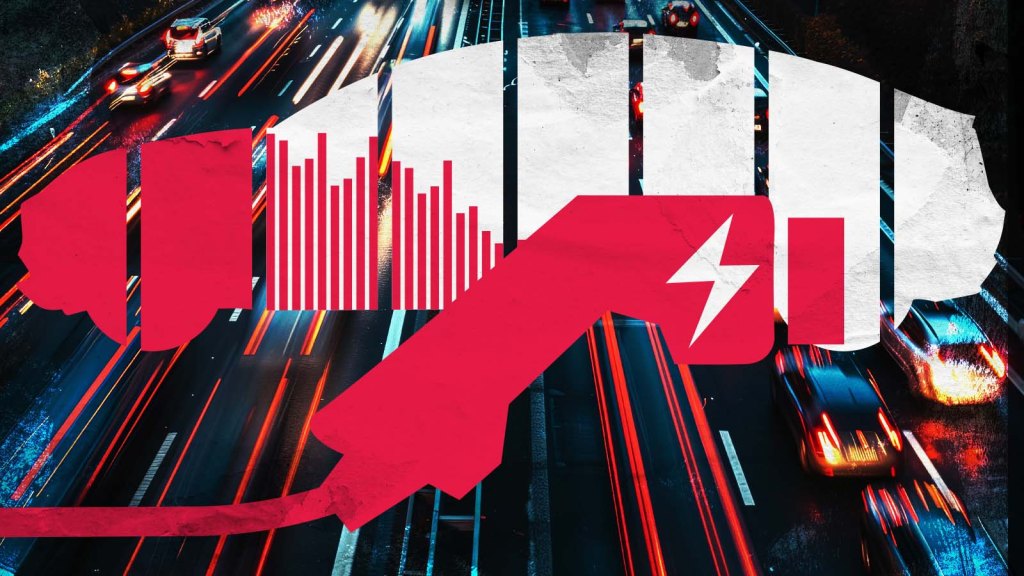Despite the ongoing debate between Elon Musk and Sir Keir Starmer over social media and its role in recent riots, another pressing issue related to Musk’s tech empire, electric vehicles (EVs), is emerging as a significant concern for the Prime Minister.
Labour’s manifesto has committed to phasing out the sale of new petrol and diesel vehicles by 2030, a bold target that follows previous government U-turns. Initially set by Boris Johnson, the 2030 goal was later extended to 2035 by Rishi Sunak to align with the European Union’s timeline.
However, the automotive industry’s leaders argue that these targets are almost unachievable without a substantial increase in the availability of charging stations across the UK and solutions for those without home charging infrastructure.
Dowlais, formerly known as GKN, is a key component supplier to carmakers worldwide. Its chief executive, Liam Butterworth, projects a more conservative transition, predicting that global production of new cars could reach 50% EVs by 2045, far beyond current forecasts.
Butterworth, whose company supplies parts for 40% of the world’s cars, said, “We will reach fully electrified mobility at some point, but it will be much later than current predictions.” He added that by the mid-2040s, about 50% of new passenger vehicles might still have some form of internal combustion engine.
His views reflect a growing consensus among industry players frustrated by inconsistent regulations that compel them to produce more EVs than the market demands.
When Sunak adjusted the 2030 target to 2035, he also maintained significant EV sales targets for manufacturers. By 2030, 80% of UK sales must be EVs, with increasing yearly targets starting in 2024. The failure to meet these targets could result in fines as hefty as £15,000 per non-EV sold, though there are exceptions for manufacturers who miss the deadline.
This policy dilemma forces carmakers to increase EV sales amid declining demand. The economic solution would typically lower EV prices, but many manufacturers cannot afford to produce them cheaply enough.
Automakers like Stellantis, which produces brands such as Vauxhall, Citroën, Maserati, and Fiat, have declared these targets unfeasible and are negotiating with the Labour government for an alternative. Stellantis CEO Carlos Tavares mentioned ongoing, intensive discussions with the new administration but expressed frustration over the lack of concrete solutions.
The EU’s later deadline and inclusion of hybrids in compliance complicates the situation further for British car manufacturers, who face looming penalties if they fail to meet the UK’s stringent ZEV (zero-emission vehicle) Mandate, effective later this year.
Companies, burdened by these challenges, are preparing for potential fines if less than 22% of cars sold by December are EVs. Industry-wide, current EV sales range between 16% and 19%, with Ford falling below this threshold.
To avoid penalties, manufacturers can purchase credits from those exceeding targets or defer payments, hoping to achieve future compliance. However, some companies, like Stellantis, have ruled out these options and might reduce non-EV sales in the UK to adjust sales ratios.
Butterworth from Dowlais noted a general industry slowdown in EV adoption, estimating a 2% decline this year. He described this trend as a pause in the ongoing EV transition.
Some automakers are reevaluating their EV investments due to fluctuating sales. Stellantis, for example, is modifying the electric-only chassis of its Fiat 500e to accommodate hybrid engines. Jaguar Land Rover and Mercedes-Benz are also adapting new platforms with both electric and combustion-engine capabilities.
Sir Jim Ratcliffe of Ineos postponed the launch of his Fusilier electric SUV due to classification issues with its petrol-powered range extender.
Ineos Automotive head Lynn Calder criticized the government’s 2030 target, emphasizing the lack of a coherent plan and disregard for consumer preferences. She highlighted that EVs remain expensive, with lower resale values, leading consumers to resist the transition.
Buyers’ concerns over EV depreciation are significant, with new EVs often costing up to one-third more than their combustion-engine counterparts but reselling at similar values, according to Ian Plummer, commercial director at Auto Trader.
EVs also face higher insurance premiums due to the cost of battery repairs and heavier damage during accidents, further discouraging buyers.
Additionally, reduced government subsidies have impacted demand, especially after the removal of the plug-in car grant in the UK, despite still generous company-car schemes.
Butterworth noted that changes in EV subsidies had a pronounced effect in Germany and Italy, leading to decreased demand.
Amid calls for policy reconsideration, Calder advocates for a gradual transition, incorporating plug-in hybrid electric vehicles (PHEVs). However, she expressed skepticism about the government’s receptiveness to such suggestions, especially those with strong environmental agendas.
